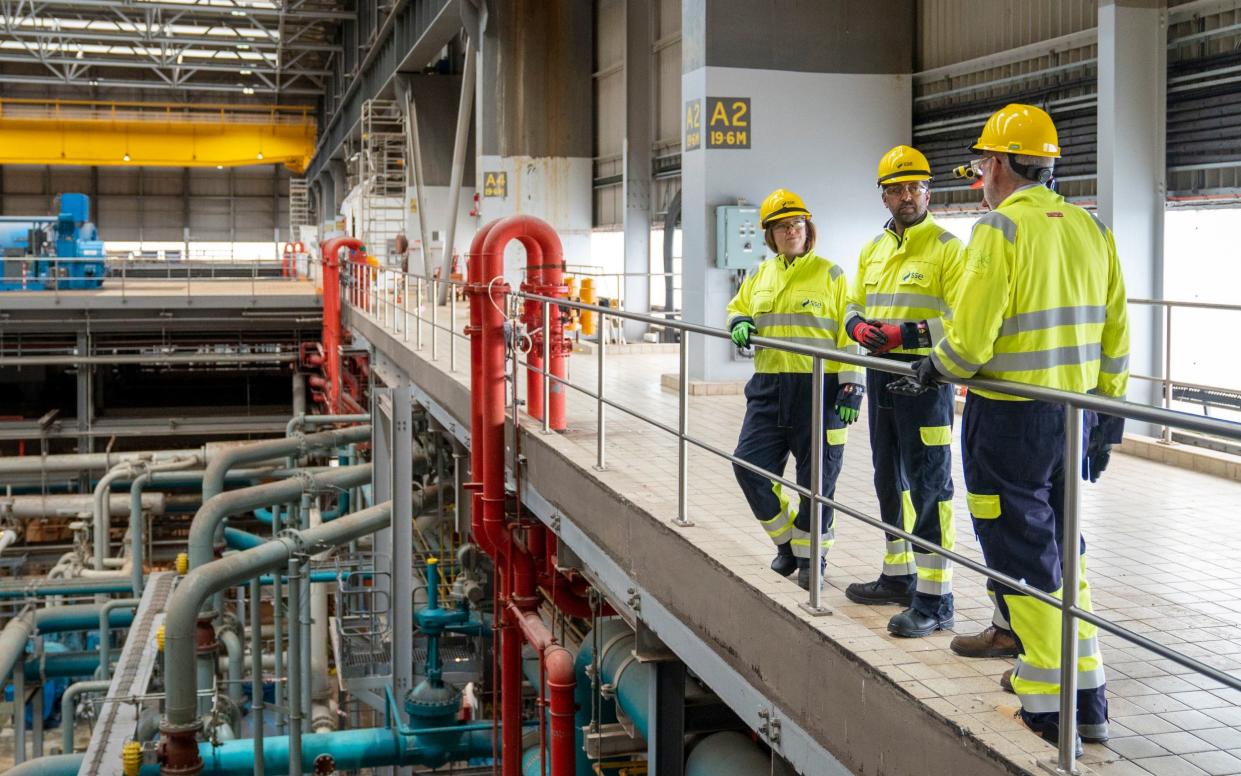Britain must spend £30bn to strip CO2 from atmosphere and hit net zero, experts warn

Britain must invest £30bn in a network of massive air cleansing systems designed to strip CO2 from the atmosphere if it is to reach net zero, a government-funded report has warned.
The “direct air carbon capture systems” would remove up to 48 million tonnes of CO2 from the air each year and then pump it into disused oil and gas reservoirs under the North Sea or Irish Sea.
Without such a scheme the UK will never reach its target of net zero emissions by 2050, according to the report by Energy Systems Catapult, a government-funded body that promotes innovation.
It also warns that direct capture will be essential if the UK is to maintain an aviation industry, because aircraft are unlikely ever to run entirely on sustainable fuels.
“Beyond 2040 we see few options to abate remaining emissions so use of direct air carbon capture and storage (DACCS) will be required,” it said.
“Direct air capture would collect 38-48 million tonnes of CO2 a year by 2050. This technology appears to be essential to meeting net zero in all our scenarios and yet remains unproven at scale.”
Direct air capture plants would need to be built along the UK’s east coast, from East Anglia to Aberdeen, so that the CO2 captured could be pumped to storage sites under the North Sea, the study said.
Around 37 billion tonnes of CO2 is released globally each year, mostly from burning fossil fuels such as coal, gas and oil.
About 40pc is soaked up by oceans but the rest stays in the earth’s atmosphere.
Removing it is a huge challenge because overall concentrations remain tiny at around 426 parts per million, or 0.04pc.
The Department for Energy Security and Net Zero is already spending £100m of taxpayers money on experimental projects to capture CO2 from the air, with plans to turn any successful ones into full-scale industries by 2040.
One idea is to grind up rocks that absorb CO2 such as basalt and spread the tiny particles across fields and other land. The particles would then convert atmospheric CO2 into minerals, locking them into the earth.
Another idea would use low carbon energy to pump air through reactive minerals, converting it into a construction material.
The problem with such schemes is that they are all energy intensive and so would need to be powered by wind, nuclear or solar energy so as not to generate as much CO2 as they save.
The study warned that aviation would always generate greenhouse gas emissions, meaning that every plane flying into or out of the UK will undermine its net zero targets. The only solution was to deploy direct air capture to remove CO2 at the same rate as it was emitted by aircraft, it said.
“It is not possible to replace the entire fleet of fossil fuelled aircraft before 2050… direct air capture will be required to abate aviation emissions,” said the report.
The UK’s carbon footprint currently stands at about 750-800m tonnes of CO2, half of which is emitted within its borders while the rest comes from goods produced abroad and then imported.
Guy Newey, chief executive of Energy Systems Catapult, said: “We have credible pathways to net zero but we need to accelerate the pace and scale of deployment to levels not yet seen.”
The Climate Change Committee, which advises the Government, has described direct air capture as “a necessity, not an option”, for the UK to meet its net zero targets.
A Department for Energy Security and Net Zero spokesman said removing greenhouse gases from the atmosphere was essential in helping the UK achieve energy security and independence.
The spokesman added: “The UK has one of the greatest CO2 storage potentials of any country in the world, with the North Sea having the potential to hold an estimated 78 billion tonnes. We are tapping into this potential by investing £20bn in carbon capture and storage, driving economic growth and supporting up to 50,000 jobs.
“We are also investing up to £100m in research and innovation for greenhouse gas removal technologies such as Direct Air Capture.”

